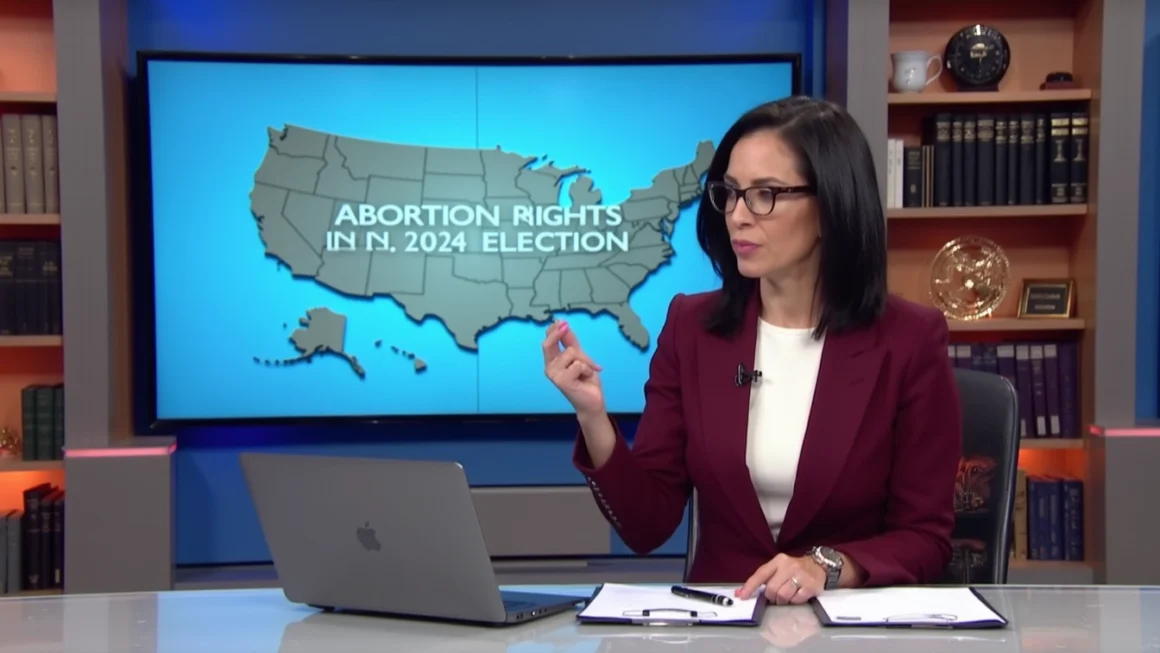As the 2024 election approaches, abortion rights are once again taking center stage in American politics. Following the Supreme Court’s decision to overturn Roe v. Wade in 2022, several states are now gearing up for ballot initiatives that could shape the future of reproductive rights across the nation.
The Landscape of Abortion Rights in 2024
Table of Contents
Since the Dobbs decision, which eliminated the federal constitutional right to abortion, individual states have gained significant power in determining abortion access. This shift has led to a patchwork of laws across the country, with some states enacting strict bans while others have moved to protect abortion rights.
In response to this new legal landscape, abortion rights advocates are turning to direct democracy, pushing for ballot measures that would enshrine reproductive rights in state constitutions. This strategy has already seen success in several states, including Kansas, Kentucky, and Michigan.
States to Watch in 2024
Florida
In Florida, activists are working to gather signatures for a ballot initiative that would establish a constitutional right to abortion up to fetal viability. This effort faces significant challenges, including a recent law signed by Governor Ron DeSantis that bans most abortions after six weeks of pregnancy.
Arizona
Arizona is another key battleground, where supporters are pushing for a constitutional amendment to protect abortion rights up to fetal viability. The state currently has conflicting laws on the books, including a near-total ban from 1864 that has been revived following the Dobbs decision.
Nevada
While Nevada already has statutory protections for abortion rights, advocates are seeking to further strengthen these protections by enshrining them in the state constitution. This move would make it more difficult for future legislatures to restrict abortion access.
The Impact of Ballot Initiatives
Ballot initiatives have proven to be a powerful tool for abortion rights advocates. They allow voters to directly weigh in on the issue, bypassing state legislatures that may be resistant to protecting reproductive rights. This approach has been particularly effective in states where public opinion on abortion rights differs from the stance of elected officials.
Moreover, these initiatives can have significant political implications beyond their immediate impact on abortion access. They can drive voter turnout and shape the broader political narrative, potentially influencing other races on the ballot.
Challenges and Opposition
Despite the momentum behind these ballot initiatives, they face substantial opposition from anti-abortion groups and conservative lawmakers. These opponents are employing various strategies to counter the initiatives, including:
- Launching counter-campaigns to sway public opinion
- Challenging the language and validity of ballot measures in court
- Proposing legislative measures to make it harder to pass constitutional amendments
In some states, lawmakers have even attempted to change the rules governing ballot initiatives, raising the threshold for passage or imposing stricter requirements for signature gathering.
The Broader Context
The push for abortion-related ballot measures in 2024 is part of a larger trend of using direct democracy to address contentious social issues. This approach has been used successfully for various causes, from marijuana legalization to minimum wage increases.
In the realm of automation and digital workflows, tools like Make.com are revolutionizing how organizations manage their processes, including those related to advocacy and campaign management. Such platforms can streamline the coordination of signature gathering, volunteer management, and voter outreach efforts crucial for ballot initiatives.
Looking Ahead
As we move closer to the 2024 election, the landscape of abortion rights in America continues to evolve. The outcome of these ballot initiatives could have far-reaching consequences, not only for reproductive rights but also for the broader political dynamics in key swing states.
Regardless of one’s stance on the issue, it’s clear that abortion will remain a central and divisive topic in American politics for the foreseeable future. The results of these ballot measures will provide important insights into public opinion and could shape the direction of abortion policy for years to come.
As voters prepare to head to the polls, it’s crucial for citizens to stay informed about the issues on their ballots and understand the potential impact of their votes. The 2024 election may well be remembered as a pivotal moment in the ongoing debate over reproductive rights in America.




